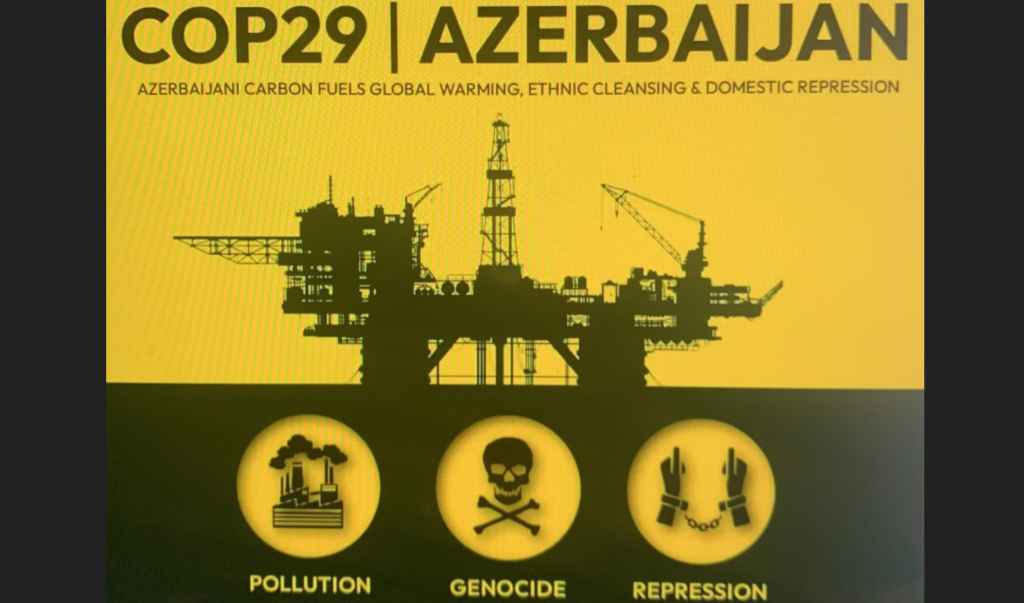David Boyajian’s op-ed presents a scathing critique of Azerbaijan as the host for the UN’s COP29 climate change conference amid its severe human rights abuses and environmental violations. He highlights the stark contrast between the conference’s lofty goals and Azerbaijan’s record, particularly under the leadership of President Ilham Aliyev, who is described as a “blood-soaked despot” that supports international terrorism and engages in repressive acts against its citizens, including the suppression of dissent and media. The op-ed notes that 32,000 attendees from around 150 nations are expected at the conference, drawing into question the credibility of global climate change initiatives when hosted by such a regime.
Azerbaijan’s environmental record is labeled as “stinking,” with significant greenhouse gas emissions and commitments that have been weakened rather than strengthened, according to Climate Action Tracker. Heavy reliance on fossil fuels—accounting for 90% of exports and 60% of the national budget—paints a dismal picture. Boyajian emphasizes that the country continues to undermine EU sanctions by selling Russian fossil fuels, negating any claims of environmental leadership during COP29. The horrific environmental degradation on the Apsheron Peninsula, particularly in Baku and the Caspian Sea, is described as one of the most ecologically devastated areas worldwide, exacerbated by pollution and waste mismanagement.
Beyond environmental concerns, Boyajian shifts focus to Azerbaijan’s repressive domestic policies. Under Aliyev’s regime, political dissent is met with violence, including arrests and beatings of protestors, particularly in sectors linked to the toxic waste byproducts of state-run businesses. Human Rights Watch and the EU Parliament have voiced their disapproval regarding Azerbaijan’s oppressive environment, labeling its hosting of a climate conference as “embarrassing.” International lawmakers are urging for the release of political prisoners and humanizing the plight of Armenians displaced by Azerbaijani military aggression.
The narrative advances to discuss how Aliyev is attempting to use COP29 to “greenwash” Azerbaijan’s corrupt image through various means, including hosting international sporting events and engaging with the Vatican for legitimacy. Boyajian mentions significant bribes paid to European politicians and an effort to sanitize Azerbaijan’s reputation while its leaders benefit from lucrative COP29 contracts. Allegedly, social media accounts aimed at discrediting criticism of Azerbaijan are at work, further highlighting manipulative tactics within the climate initiative.
Luis Moreno Ocampo, the ICC’s first prosecutor, has called attention to Azerbaijan’s abuses, labeling the treatment of Armenian hostages amid ongoing tensions as genocide. Ocampo’s remarks provide a moral grounding for condemnation of Azerbaijan’s actions both at home and against its neighbors, reinforcing the theme of the op-ed that the international community’s lack of response to Azerbaijan’s behavior raises concerns about the legitimacy and ethical standing of COP29.
Boyajian’s concluding remarks encapsulate a broader point on the moral failure of allowing a regime with such a notorious record to host a global climate summit. He posits that those endorsing Azerbaijan as the venue for COP29 present a greater danger to humanity than the intended climate solutions themselves. Ultimately, he calls for a clearer distinction between climate advocacy and the unethical realities of hosting nations responsible for severe human rights and environmental violations.

